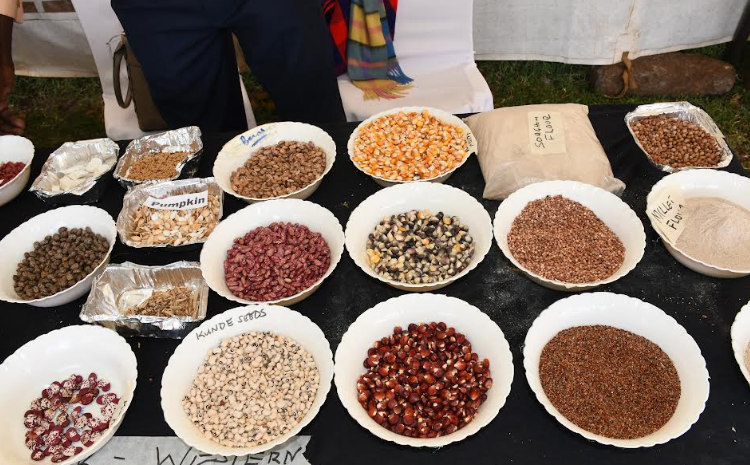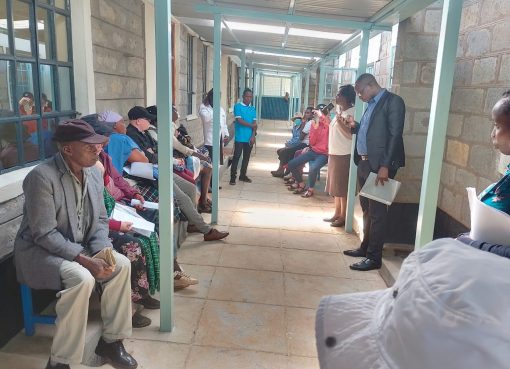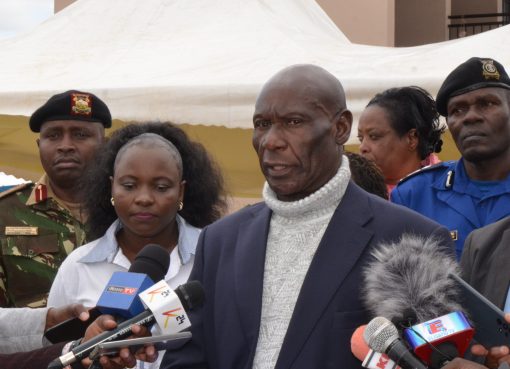Smallholder farmers who specialise in organic farming are warning of negative health implications for consumers should the agriculture sector fully embrace the high yielding Genetically Modified crop varieties.
Speaking on the sidelines of the first Central Kenya Indigenous Seed and Food Culture Harvest festival in Nyeri, the farmers say that replacing indigenous seed varieties with GMOs will come with far reaching negative implications on the overall health of the Kenyan consumer.
“We are not fighting with the government, but we need to start thinking critically about what foods we are advocating for people to put into their mouths. Deviating from traditional foods has really worked against us in terms of the emerging health issues. That is why we are saying we need to go back to our roots,” said Pauline Nagila, a farmer from Busia County.
“When you ingest the growth hormones and some of the chemicals that are used for pest control in the GM production cycle, they end up causing harm to your body.
As a consumer you are also predisposed to opportunistic diseases such as diabetes, cancer and high blood pressure and that is why we are advocating for traditional foods grown under organic conditions,” she added.
The farmers were responding to a decision by Justice Lawrence Mugambi of the High Court to dismiss petitions challenging the lifting of a 10-year ban on GM foods in the country. In his ruling on Thursday last week, Justice Mugambi said that the Environment and Land Court had addressed the matter in October 2023.
Justice Mugambi stated that the court had previously determined that the government had implemented adequate health and safety measures to address concerns raised by the petitioners. But the farmers have argued that it will be unwise for producers and consumers to fail to take precautions when embracing GM products.
“At least with indigenous seeds we have security and comfort that we are not consuming poison or poisonous substances. I think the bottom line should be for continuous sensitisation of the public on what GMO really is then allow them to make the decision freely,” said Hellen Rotich from Bomet county.
For others like Collins Chikoli, an agronomist at the Grow Bio-intensive Agriculture Centre of Kenya, farmers risk causing more damage to the soil structure.
Chikoli said that farmers are currently struggling with highly acidic soil levels due to application of harmful pesticides, a situation he said is likely to worsen should the country shift to GMOs.
“Embracing GMO means we will lose most if not all of our indigenous seed varieties and the end result will be that farmers will have to depend on multinationals for food and for seeds. Production will also be heavily mechanised with the use of chemicals and fertilisers which will eventually kill our soils. In the end we may have to depend on imported food to survive,” Chikoli said.
The two-day exhibition was organised by the National Museums of Kenya and Biodiversity and Biosafety Association Kenya (Biba) and it attracted participation of smallholder farmers from 30 counties.
The expo which was themed “Indigenous foods: Our Heritage, Wealth and Health” was aimed at reviving and re-popularising indigenous seed varieties amongst Nyeri’s smallholder farmers.
By Wangari Mwangi and Samuel Maina





